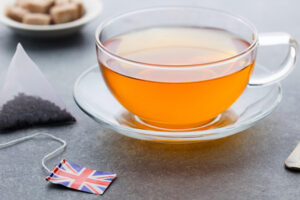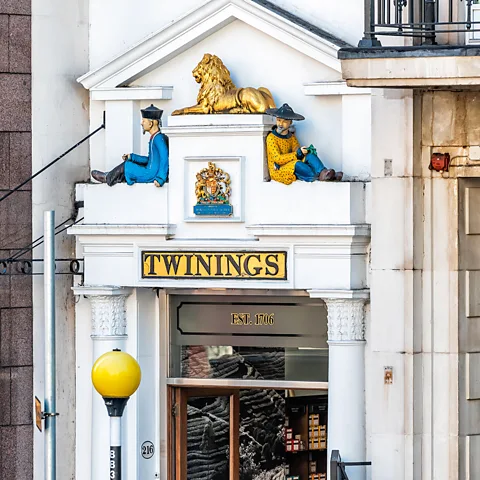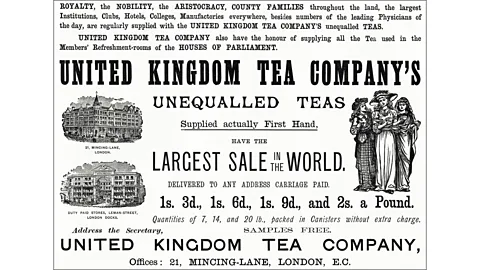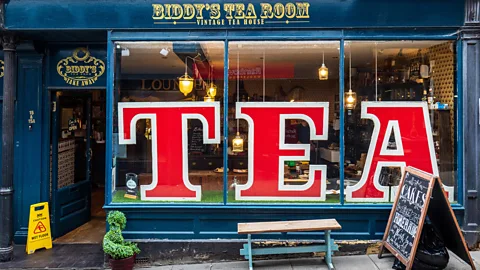 VOA — When a US chemist suggested adding salt to tea, a storm brewed online. But why does tea, and the right way to make it, strike such a nerve for so many people, especially in the UK?
VOA — When a US chemist suggested adding salt to tea, a storm brewed online. But why does tea, and the right way to make it, strike such a nerve for so many people, especially in the UK?
In the UK, a nice cup of tea is the lynchpin of many people’s day. The recipe for the perfect brew changes a bit depending on whom you talk to – whether to add milk before or after adding tea to a cup, in particular, is a famously touchy subject. But a new book by an American chemist sparked a storm of online outrage last week when it suggested that tea might be improved with a bit of salt. In fact, the tempest in this tea kettle grew so frothy that the US Embassy weighed in on X, the platform formerly known as Twitter: “We want to ensure the good people of the UK that the unthinkable notion of adding salt to Britain’s national drink is not official United States policy. And never will be.”
A number of charming and witty news stories reported on the controversy. The writers and editors at Serious Eats even performed taste tests and concluded that the chemist, Michelle Francl, author of Steeped: The Chemistry of Tea, was right. Adding a small amount of salt to a pot did indeed remove some of tea’s bitterness. But why does tea, and the right way to make it, strike such a nerve for so many people in the UK?
Methods of making tea are hardly static if you delve into the drink’s history in Britain. When tea was first brought to England in the 17th Century, it was drunk without milk; Samuel Pepys’s first cuppa, which the English diarist drank on a Tuesday in September 1660, would certainly have been milk-free (he doesn’t mention tea again for another seven years, and then only because he comes upon his wife brewing it for herself as a kind of medicine). Sugar was a more common additive, with the habitual addition of milk coming in much later.
 Kristina Blokhin/Alamy
Kristina Blokhin/AlamyAt the same time that people were experimenting with various ways to prepare this infusion, government policies were helping entrench tea as a daily necessity for many Britons, says historian Pen Vogler, author of the book Scoff: A History of Food and Class in Britain. The 18th Century saw a tremendous alteration in how tea was taxed, taking it from a sometime-luxury to something everyone could afford.
“The East India Company was so embedded in the government, it became like the banks in 2008: too big to fail,” Vogler says. “And what it was basically dealing in was tea, among other things.” So when Richard Twining of the Twining’s tea company put in a word with the prime minister (William Pitt the Younger) about creating more demand for Chinese tea, the government obliged with the 1784 Commutation Act, slashing taxes on tea from 119% to 12.5%.
So began a free-for-all of tea drinking among people of all classes and income levels. This eventually helped shape events far beyond the British Isles. According to economist Francisca Antman, there was so very much tea being drunk in late 18th-Century England that it may have appreciably lengthened life expectancy (boiling water, as one does when brewing a black tea, kills bacteria). When the British ruled India, and Chinese tea plants stolen by a Scottish botanist proved to grow well there, it was British plantation owners who oversaw the crop. “It started to be seen as an English thing,” says Vogler; tea drinking was a way of supporting these colonists. “It gave us a right to tea.”
 Jeff Morgan 16/Alamy
Jeff Morgan 16/AlamyWhat’s more, almost all tea sold internationally went through London on its way to the rest of the world, says Markman Ellis, a professor of 18th-Century studies at Queen Mary University of London and a co-author of the book Empire of Tea: The Asian Leaf That Conquered the World. In China and India, plenty of people were drinking tea grown nearby; for everyone else, there was tea funnelled through London.
From these facts arose a kind of mythos surrounding this drink, that there was something essentially British about tea. The feeling persists, even in an era when it doesn’t take much Googling to find out that English Breakfast Tea, whatever its name, is usually grown thousands of miles from England. British methods of making tea, with all their regional and class-linked variations, represent a fairly small sample of the global whole: China has its own spread of epicurean and proletarian tea brewing strategies, and people from the Indian subcontinent brew masala chai in a manner than has little in common with the British version.
As food historian Helen Saberi writes in the opening sentences of Tea: A Global History: “The Chinese sip it from tiny cups, the Japanese whisk it. In America, they serve it iced. The Tibetans add butter. Russians serve with lemon. Mint is added in North Africa. Afghans flavour it with cardamom.” The list of valid tea preparations from around the world goes on.
 Robert Evans/Alamy
Robert Evans/AlamyBut for many in the UK, tea somehow still strikes close to home. “By drinking tea, Britons were participating in a process of national myth-making,” says Richard Coulton, senior lecturer in English at Queen Mary University of London and one of Ellis’s Empire of Tea co-authors. “I think that when Britons today get excitable about the perfect cup of tea, some of what is going on is a latent cultural desire to hold onto that sense of wanting to experience and articulate global mastery, or at least a nostalgia for stories of that glorious past.”
And people love to talk about tea because it’s, well, everywhere. “Tea punctuates our day,” says Vogler. “It’s something that’s a really important part of your daily rhythm – it’s like your commute.”
However, she continues, “it’s also partly all the things we’ve been talking about: the over-identification with tea, for all those historic reasons. And I say this as a complete tea fanatic. I love tea.”
BBC.com’s World’s Table “smashes the kitchen ceiling” by changing the way the world thinks about food, through the past, present and future.
